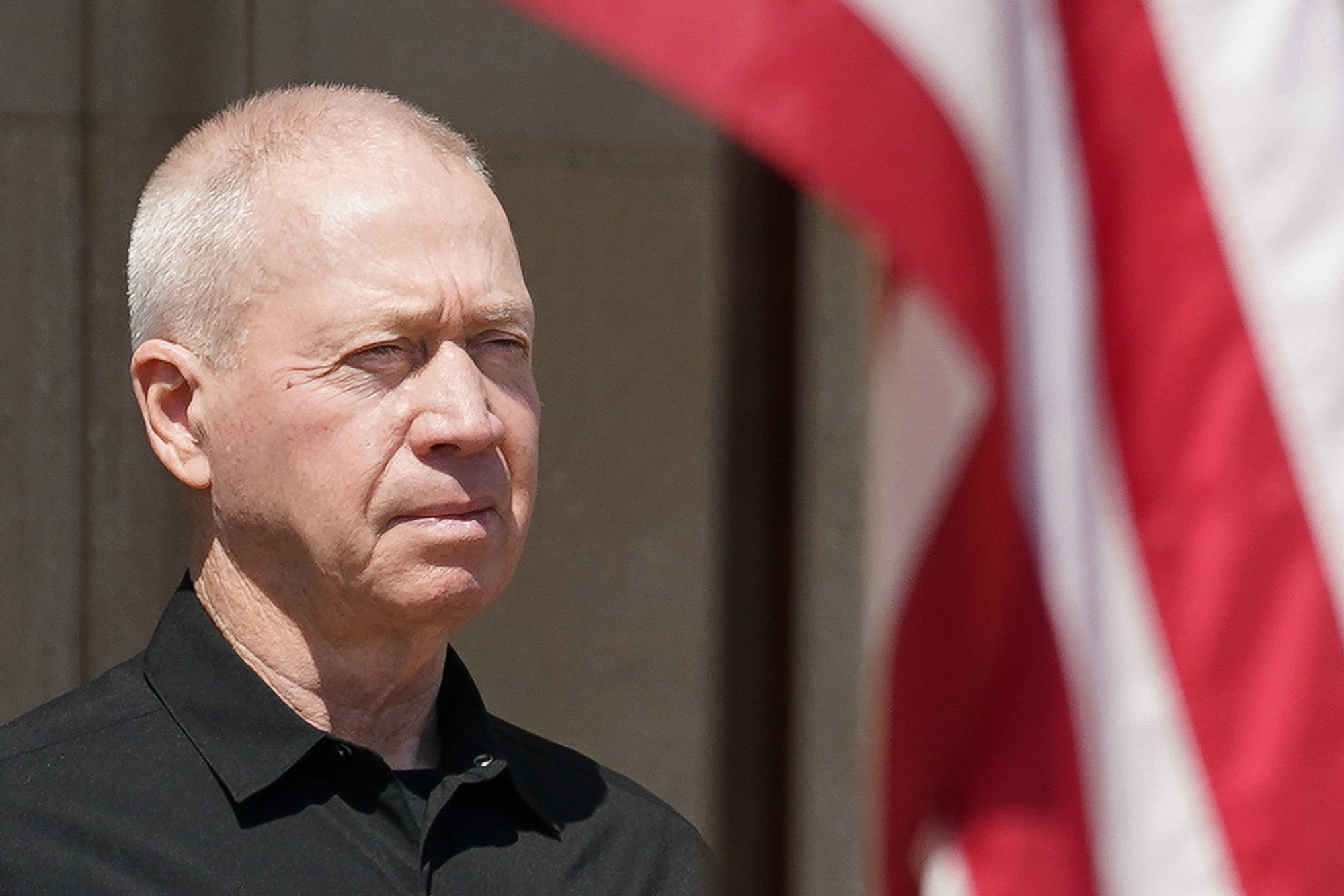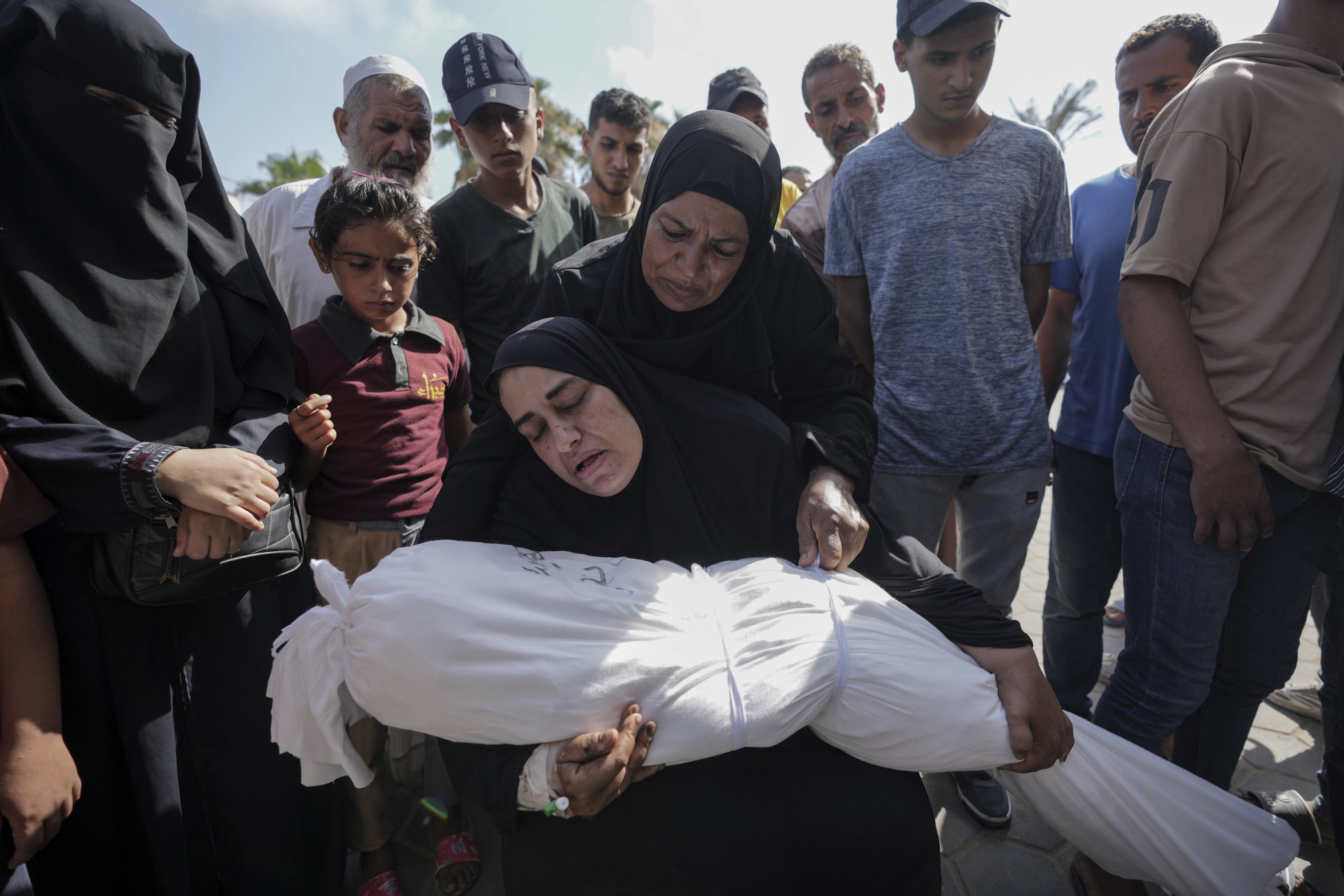USA and Israel point to progress in resolving the conflict over military weapons in the Gaza Strip

Gallant said there was progress on “a number of issues,” including “the issue of troop buildup and ammunition supplies that we need to carry into the State of Israel.”

“I would like to thank the US government and the American public for their continued support of the State of Israel,” he said.
Netanyahu has publicly accused the Biden administration in recent days of slowing down arms deliveries to Israel, which has been at war in the Gaza Strip since a Hamas attack on October 7.
US officials have rejected the allegations and expressed anger, months before an election in which Biden’s support for Israel has become a liability and a left wing of his Democratic Party is outraged by the high death toll among Palestinian civilians.
In early May, the United States froze a shipment containing 2,000-pound bombs, and Biden threatened another halt while urging Israel not to launch a large-scale military assault on Rafah, the southern Gaza city where more than a million displaced Palestinians have sought shelter.
A senior U.S. government official said the United States has shipped more than $6.5 billion worth of weapons to Israel since October 7, including nearly $3 billion in May alone.
“This is a huge undertaking and nothing will be delayed except one delivery,” the official told reporters on condition of anonymity.
The official attributed the gap to misunderstandings in the “complex” bureaucratic process in the U.S. He said Gallant’s team and U.S. experts had reviewed “every single case.”
“There has been real progress and a mutual understanding about where things stand and about prioritizing certain cases over others so that we can make sure we move things forward in a way that meets the needs of Israelis,” he said.

Biden – whose stance toward Israel has been criticized by both progressive and right-wing circles – held back on restricting arms supplies after Israel conducted what U.S. officials called relatively targeted operations in Rafah.
Netanyahu and Gallant said the heaviest phase of the fighting was over and that Israel would move its troops toward the Lebanese border after increasing clashes with the Iranian-backed militant group Hezbollah.
The US official said Washington continues to have “fairly intense discussions” with Israel, Lebanon and other actors and believes neither side is seeking “major escalation”.
Gallant, who has met twice in Washington with Amos Hochstein, the US liaison between Israel and Lebanon, warned that his forces could “inflict massive damage” on Hezbollah if war breaks out.
“We don’t want war, but we are preparing for any scenario,” Gallant told reporters.
US officials, including Secretary of State Antony Blinken, expressed hope that a ceasefire in the Gaza Strip could also lead to an easing of tensions in Lebanon.
Biden presented a plan for a temporary ceasefire and the release of the hostages on May 31, but Hamas came back with further demands.
Despite criticism of the proposal by some of Netanyahu’s far-right allies, Gallant said: “We are all committed to the president’s deal and strongly support it.”
“Hamas must accept it or face the consequences,” he said.
The Gaza War began with the Hamas attack on southern Israel on October 7, which killed 1,195 people, mostly civilians, according to an Agence France-Presse count based on Israeli figures.
The militants also captured around 250 hostages, 116 of whom are still in the Gaza Strip, but the army says 42 people are dead.
According to the Health Ministry of the Hamas-controlled Gaza Strip, at least 37,718 people were killed in Israel’s retaliatory offensive, again mostly civilians.

:max_bytes(150000):strip_icc():focal(1096x301:1098x303)/Taylor-Swift-Ireland-062924-01-18b2d6a4392b4d16b2c9231b1ec90cb6.jpg)

